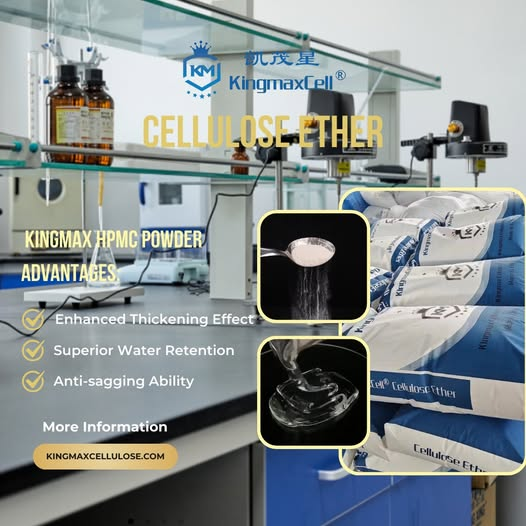Hydroxypropyl Methylcellulose (HPMC) is a versatile cellulose ether widely used as a functional additive in gypsum-based dry-mixed mortars. It enhances various physical and mechanical properties, including water retention, workability, adhesion, and setting control, making it an indispensable component in modern construction materials.
This article outlines the roles and benefits of HPMC in gypsum-based systems, focusing on its applications and performance-enhancing properties.
Key Roles of HPMC in Gypsum-Based Mortars
- Water Retention
HPMC provides excellent water retention, ensuring that sufficient moisture remains in the gypsum mix for proper hydration and curing. This controlled moisture distribution helps gypsum achieve optimal strength and adhesion.- Advantages:
- Prevents premature drying.
- Reduces shrinkage cracks and improves surface finish.
- Ensures consistent setting and curing.
- Advantages:
- Improved Workability
HPMC enhances the workability of gypsum mortars by modifying their viscosity and rheological properties. This makes the mix easier to apply, spread, and level, particularly in plastering and joint filling applications.- Advantages:
- Smooth application with reduced drag.
- Reduced splattering during application.
- Better coverage with uniform thickness.
- Advantages:
- Enhanced Adhesion
By improving the bonding strength between the gypsum and the substrate, HPMC ensures that the mortar adheres firmly, even on challenging surfaces like concrete, bricks, or drywall.- Advantages:
- Stronger adhesion to vertical and horizontal surfaces.
- Reduced delamination and detachment risks.
- Long-lasting performance.
- Advantages:
- Setting Time Control
HPMC can influence the setting time of gypsum-based mortars, making it possible to customize the material for specific applications. This flexibility is especially beneficial in construction environments with varying temperature and humidity.- Advantages:
- Adjusts working time to suit different project requirements.
- Allows for efficient on-site adjustments.
- Advantages:
- Sag Resistance
In vertical applications such as wall plastering, HPMC provides excellent sag resistance, ensuring that the mortar stays in place during application and curing.- Advantages:
- Prevents slumping or sliding of material on walls.
- Reduces material wastage and ensures uniform thickness.
- Advantages:
Benefits of HPMC in Gypsum-Based Mortars
- Consistency and Stability
- HPMC stabilizes the gypsum mortar mixture, preventing segregation of components.
- Ensures a uniform consistency for smooth application.
- Crack Prevention
- By retaining water during the curing process, HPMC minimizes shrinkage-related cracking.
- Enhances the durability and appearance of the finished surface.
- Compatibility with Other Additives
- HPMC works well with other admixtures and fillers used in gypsum-based mortars, such as retarders, accelerators, and plasticizers.
- Offers flexibility in formulating mortars tailored to specific needs.
- Eco-Friendly and Non-Toxic
- HPMC is derived from natural cellulose and is environmentally friendly.
- Safe for use in residential and commercial construction applications.
Applications of HPMC in Gypsum-Based Systems
HPMC is a critical ingredient in various gypsum-based dry-mixed mortars, including:
- Gypsum Plasters
- Provides a smooth finish with excellent workability and water retention.
- Enhances bonding strength and reduces shrinkage cracks.
- Gypsum Joint Fillers and Crack Sealers
- Improves adhesion to drywall joints and cracks.
- Offers extended open time for easier application and corrections.
- Self-Leveling Compounds
- Controls viscosity for optimal flow and leveling properties.
- Prevents segregation and enhances surface smoothness.
- Gypsum Adhesives


